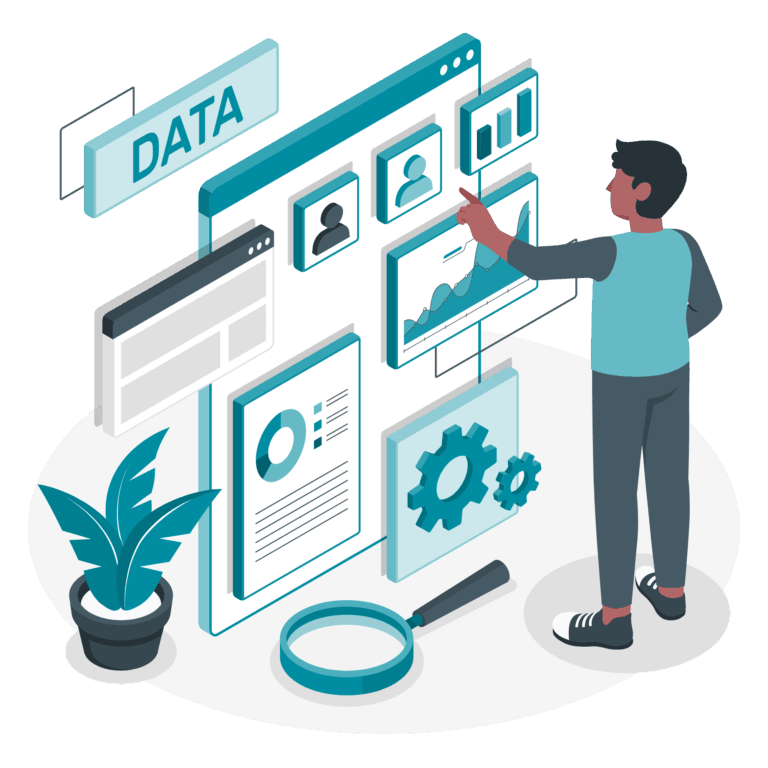Enhance employee wellbeing with tailor-made strategies that prevents burnout, promotes strengths, and protects long-term organizational health.
98% of employee wellbeing interventions fail to meet growth promises, resulting in a staggering annual cost of €450-500 billion (Flemming, 2024; HBR, 2023).
More than 80% of restructuring change plans fail to deliver the expected value in the planned time (Singh & Ramedeo, 2020)
70% of change initiatives fail to achieve their intended goals due to poor problem diagnosis, execution and planning (McKinsey, 2022).
Research shows poor decisions can result in a 39% loss of customers, 45% drop in employee retention and engagement, 59% rise in costs, and 44% decline in overall effectiveness (Ponnampalam, 2024).
Organisations report high levels of employee engagement but still see no improvement in Performance outcomes (Handoyo et al., 2016; Neuber et al., 2022)
Those who are impacted by organizational change or restructuring initiatives report higher stress, anxiety, burnout and job insecurity and increased mental health problems (Oreg et al., 2021Van Zyl et al., 2024)
A meta-analysis showed that in Randomized Control Trials, very few workplace provide any ROI (Thonon et al., 2023)
Flemming’s (2024) study of 46,336 workers across 233 UK organizations found NO IMPROVEMENT in the happiness, engagement, mental health or performance among employees who participated in wellbeing programs.
In fact, some were even WORSE off afterwards.
This adds to mounting evidence questioning the effectiveness of workplace wellbeing interventions.




We know that generic, one-size-fits-all approaches to employee wellbeing simply don’t work.
That’s why we provide tailored, data-driven interventions rooted in Positive Psychology and cutting-edge science.
Our Scientific Approach to Tailor Wellbeing to Every Level
Fortifying Organizations Against Mental Health Challenges
Proactively identify your organizational risks and implementing strategies to stop problems (like stress, burnout and poor collaboration) before they start with targeted diagnostics and early interventions
Prevention is the foundation of any organizational wellbeing strategy. Here we are focusing on reducing the risks associated with the onset of common workplace mental health issues (e.g. burnout, stress) and addressing these challenges proactively, before they become major problems. By implementing proactive initiatives at all levels, organizations can not only manage their risk, but also create healthier work environments and empower employees to thrive. Prevention not only safeguards mental health but also builds important employee behaviours that leads to high performance.
The strategies we implement in this phase is associated with the level of risk as to the onset of mental health problems and the associated risk to the organization. There are three approaches to prevention, each with their own interventions:
These are strategies aimed at managing the general, system wide risks and improving the entire ecosystem of the organization in order to prevent the onset of the factors leading stress and mental health issues.
Example Interventions we provide in this phase:
These interventions are aimed at groups of employees or teams who are exposed to specific job demands or who are at a higher risk of experiencing prolonged stress or burnout. For example, within a hospital nurses are more likely to be burnt out than the support staff. The aim is to provide targeted, preventative interventions to build resilience in these at risk groups, and to reduce the effect these high job demands have on their mental health.
Example Interventions we provide in this phase
These interventions aim to prevent the escalation of problems for individuals or teams already showing early signs of stress, anxiety, burnout or other mental health challenges. These individuals or teams pose the highest risk to performance and organizational functioning.
Example Interventions we provide in this phase
Pinpoint, Treat & Neutralize Problems with Targeted Interventions
Identify problems, intervene early and address existing issues by offering hyper-personalized support to help employees overcome challenges and return to peak performance.
Progression (or “Treatment“) focuses on identifying current mental health challenges, their systemic causes and addressing these in a timely through personalized interventions and effective support. This phase is really about providing employees with the necessary tools, resources, and care they need to recover, manage challenges, and to help them thrive again at work. This phase involves a systemic investigation into the structural causes of work related mental health problems and helps to develop individual and organizational interventions to address these.
This phase is not just focused on helping people recover, but its about empowering them to use their strengths mode active at work, and helping them use these strengths to manage work-related challenges better in the future. Here we want to help employees turn their challenges into opportunities for growth by nurturing their personal and professional development so we can unlock their untapped potential. This phase transforms obstacles into opportunities for innovation, and growth.
Here, we follow a systematic approach:
Sharpen your organization’s ability to spot and address mental health challenges before they impact performance.
Here the focus is uncovering the root causes of mental health challenges impacting performance. It involves strategies aimed at helping to identify and recognize the early signs of mental health challenges, the causes of current problems and to identify the severity of the challenges facing the employee, the team and the organization.
Example Interventions we provide in this phase:
Act swiftly and decisively to support employees who are currently showing signs of mental health problems in order to minimize downtime and maximizing recovery. Here the focus is on addressing issues before they spiral into larger organizational problems.
These are short term, high impact interventions.
Example Interventions we provide in this phase
Providing holistic and ongoing support for employees facing significant mental health challenges in order to aid in their recovery and reintegration into the workplace.
We offer a full spectrum of support to ensure that every team member has the necessary resources they need to thrive.
Example Interventions we provide in this phase
Safeguard Your Most Valuable Asset From Mental Health Risks
Ensure lasting support with strategies that maintain progress, prevent setbacks, and create a culture of trust and security.
Protection ensures that the improvements in wellbeing from earlier phases are not just temporary but sustained over time. This phase focuses on providing ongoing support, preventing relapses, and creating a safety net for struggling employees. By safeguarding the progress made earlier, organizations can maintain a thriving, productive culture.
This phase also has three inter-related types of strategies:
These are strategies we implement to empower your teams with the knowledge, skills, tools and techniques they need to become masters of their own mental wellbeing. The main aim is to help employees take charge and ownership of their work and their wellbeing.
Example Interventions we provide in this phase:
These are strategies to support employees in maintaining the progress they made in improving their wellbeing and preventing a recurrence of mental health challenges again in the future.
Example Interventions we provide in this phase
These refer to ongoing efforts by leaders and the organization to promote positive practices and enhance workplace mental health systems over time.
Example Interventions we provide in this phase
Fuel Excellence Through Strengths-Based Growth
Unleash your organization’s full potential by cultivating positivity, amplifying strengths, and driving innovation and collaboration.
Promotion is about cultivating strengths, enhancing resilience, and helping employees and teams reach their full potential. This phase nurtures a workplace culture of thriving and peak performance, where employees feel valued, energized, and ready to innovate.
There are a number of different approaches to take, and the possibilities are endless. Here are some examples
Leaders play a central role in the development and management of wellbeing at work. Here, we aim to equip leaders with the tools to drive their teams wellbeing and performance.
Example Interventions we provide in this phase:
Here we want to create and sustain workplaces that radiates positivity, and that prioritizes wellbeing in order to create the conditions for employees to reach new heights in performance.
Example Interventions we provide in this phase
Here the focus is on improving team climate so that its conducive to collaboration and pro-social behaviours.
Example Interventions we provide in this phase
These are initiatives that help employees to identify, develop, and use their strengths more actively at work to improve their wellbeing and performance.
Example Interventions we provide in this phase
Our tailored, science-backed services empower organizations, teams, and employees to build happier, more resilient workplaces while driving meaningful growth.
Helping organizations address systemic challenges to create a culture where wellbeing thrives
Our team-focused interventions enhance collaboration, resilience, and performance across departments
Supporting employees with the tools and coaching they need to thrive in all life domains.
We empower HR professionals, psychologists and coaches with advanced skills to drive wellbeing across their organizations.

Data-Driven and Contextualized
We fully emerge ourselves into your organization and then conduct a thorough evaluation of your current state.
By using advanced predictive analytics and the latest trends in organizational diagnostics, we identify the exact challenges, strengths, opportunities and aspirations of your employees and organization. This enables us to design custom employee wellbeing interventions thats uniquely tailored to the needs of your employees and your organization’s growth goals.
Focus on the Root Cause
We aim to identify and fix the root causes of problems.
We identify and tackle systemic issues like workload, toxic cultures, and ineffective leadership rather than merely addressing symptoms like “communication problems”.
By addressing workplace systems and cultures alongside individual needs, we create environments where wellbeing and performance flourish together.
Sustainable Growth Over Quick Fixes
We understand the need to address people problems when they occur. Our approach is aimed at helping tackle these issues but also to ensure that these do not manifest again.
Thus, our interventions are designed to deeply embed wellbeing into the DNA of your organization.
We focus on creating policies, practices and processes that’s built around creating a culture where wellbeing is a strategic priority. This helps getting the best out of your people and fosters long-term growth, engagement, and resilience.
Scientifically Grounded Solutions
We approach each intervention as if it was a scientific study so that we can address issues with clinical precision.
Our interventions are rooted in the science of wellbeing, and positive psychology that’s been validated by rigorous scientific research in order to ensure they are effective and credible.
We combine proven scientific measurement and intervention methodologies, with the latest scientific advancements in positive psychology and intervention design, to ensure that our interventions are highly effective. .
Rooted in Strengths, Not Deficits
Leveraging the science of wellbeing and the strengths-based approach, our approach focuses on developing and optimizing employee’s strengths to empower them to thrive, and not just survive!
We address systemic problems by helping employees use their strengths, and whats already working well, as a means to fix problems and to drive meaningful, lasting change.
Holistic Approach to Wellbeing
We adopt a holistic approach towards enhancing wellbeing, working on both the individual and the organization.
On the individual level we approach wellbeing from a comprehensive perspective that balances the development of wellbeing (i.e. emotional, psychological, social, financial, environmental, physical, cognitive and spiritual components of wellbeing) and common work-related mental health problems (i.e burnout, stress, anxiety and depression)
On the organizational level, we work towards facilitating systemic changes through the organization through developing and refining policies through to system wide change processes.
Proactive Prevention & Promotion
By identifying risks early and promoting growth-oriented practices, we prevent burnout and cultivate a culture of well-being and innovation.
Partner with the pioneers in positive psychology who literally wrote the book on Strengths-Based Coaching and Positive Psychological Intervention Design.
Our proven, science-backed methods are trusted by organizations worldwide to drive real change and measurable outcomes.